Fifty-one matches across eleven cities in thirty-one days and Euro 2020 concluded, sadly, with a whimper rather than a bang for England at Wembley, whilst the Italians claimed their second ever Euros victory, some fifty-three years after their first, but it’s been a tournament of highs and lows that at least offered some distraction – and, briefly, glorious, glorious hope – from the last eighteen months. With the trophy back in Rome and football fever once more subdued back home, let’s take one final look back.
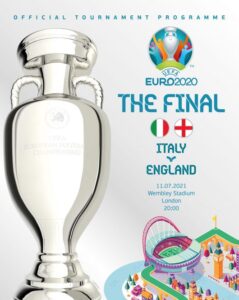 The Final – Before the start of the tournament, this was a Final that few would have predicted. Italy barely entered anyone’s thoughts and England were spoken of more in hope than expectation. From Italy’s first match against Turkey, however, it was clear that this Azzurri side was one to watch – and rightly so, on the back of an impressive run of victories and clean sheets. What made this Italy team stand out was its genuine attacking intent and dynamism – something not necessarily associated with the defensive-minded Italy of times gone by, but a welcome breath of fresh air. England, meanwhile, took some by surprise as well, in their measured, pragmatic approach, patiently seeking out results, building on a solid defence and looking quietly confident. As many of the big guns crashed and burnt, Italy and England progressed steadily but surely, so that by the Semi-Final stage, they were the clear favourites to face off for the Final, and so it turned out. It was generally felt that the Final would be a close-run thing, no out-and-out favourite, a 50% chance of England winning their first trophy in 55 years and a 50% chance of Italy claiming their first Euro victory in 53 years. Tactics were once again the order of the day prior to kick-off, with Southgate opting for a back three, and England couldn’t have wished for a better start, with Luke Shaw, who has emerged as one of the best full-backs in football throughout this tournament, scoring the fastest goal in a Euros Final in 1 minute 57 seconds. With a rocking Wembley, the Italians didn’t know what had hit them and this was the chance for England to capitalise. The measured approach that had done so well for the Three Lions, though, allowed Italy to get back into the game, and when they scored early in the second-half, there was a sense of growing inevitability. England had come from behind against a dogged Denmark, but otherwise fairly easy progress in the tournament meant they hadn’t been in a position of being pegged back before, and certainly not by such a strong, and canny, team as Italy. Chances were largely few and far between and it did seem, rather counterintuitively given England’s past, as if the Three Lions were counting on penalties. It would, in many ways, have been a fitting finale for a team who had conquered ghosts of Germany past, Semi-Finals past, to win a Final on penalties, but, alas, not all stories have a happy ending, and arguably the cruellest decider in sport crushed England’s hopes once more, but only after this brave Three Lions team had proved a lot of doubters wrong, overcome every other obstacle to the final and galvanised spirit and a nation. Looking at it objectively, Italy were far and away the best team and deserving winners, but this England team has much to be proud of.
The Final – Before the start of the tournament, this was a Final that few would have predicted. Italy barely entered anyone’s thoughts and England were spoken of more in hope than expectation. From Italy’s first match against Turkey, however, it was clear that this Azzurri side was one to watch – and rightly so, on the back of an impressive run of victories and clean sheets. What made this Italy team stand out was its genuine attacking intent and dynamism – something not necessarily associated with the defensive-minded Italy of times gone by, but a welcome breath of fresh air. England, meanwhile, took some by surprise as well, in their measured, pragmatic approach, patiently seeking out results, building on a solid defence and looking quietly confident. As many of the big guns crashed and burnt, Italy and England progressed steadily but surely, so that by the Semi-Final stage, they were the clear favourites to face off for the Final, and so it turned out. It was generally felt that the Final would be a close-run thing, no out-and-out favourite, a 50% chance of England winning their first trophy in 55 years and a 50% chance of Italy claiming their first Euro victory in 53 years. Tactics were once again the order of the day prior to kick-off, with Southgate opting for a back three, and England couldn’t have wished for a better start, with Luke Shaw, who has emerged as one of the best full-backs in football throughout this tournament, scoring the fastest goal in a Euros Final in 1 minute 57 seconds. With a rocking Wembley, the Italians didn’t know what had hit them and this was the chance for England to capitalise. The measured approach that had done so well for the Three Lions, though, allowed Italy to get back into the game, and when they scored early in the second-half, there was a sense of growing inevitability. England had come from behind against a dogged Denmark, but otherwise fairly easy progress in the tournament meant they hadn’t been in a position of being pegged back before, and certainly not by such a strong, and canny, team as Italy. Chances were largely few and far between and it did seem, rather counterintuitively given England’s past, as if the Three Lions were counting on penalties. It would, in many ways, have been a fitting finale for a team who had conquered ghosts of Germany past, Semi-Finals past, to win a Final on penalties, but, alas, not all stories have a happy ending, and arguably the cruellest decider in sport crushed England’s hopes once more, but only after this brave Three Lions team had proved a lot of doubters wrong, overcome every other obstacle to the final and galvanised spirit and a nation. Looking at it objectively, Italy were far and away the best team and deserving winners, but this England team has much to be proud of.
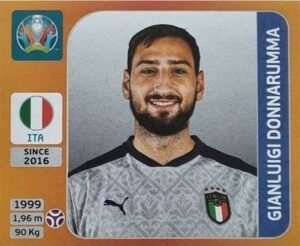 Penalties – Is there any worse way to decide a sporting contest than penalties? How does kicking a ball from 12 yards at all fairly capture the competition of a football match? In many ways, it’s the antithesis of football – static, robotic, poised – there’s none of a game’s spontaneity, energy, flow, but until an alternative is found, it’s the only option available. Even prior to this game, the notion of penalty shootouts had plagued my mind – surely, there’s a better solution? But, in truth, they can’t be matched for sheer drama or tension. Despite the routine practice teams now increasingly put into penalties, there is no way to replicate the situation of a penalty shootout, in a European Final, at home, with the weight of 55 years of history and 65 million people resting on your shoulders. Every player that even considered stepping up for England and Italy deserves huge respect. And those ten players, and not forgetting the two goalkeepers, who took part, are all champions in my mind. The walk from the halfway line is something that often gets mentioned and even that seems virtually impossible in the context of a night such as last night and again seems so out of keeping with the emphasis it places so squarely on individuals in this most collective of team sports. For the England players, especially, the sight of 6’5” Donnarumma surely would have been extra imposing. Watching on, he seemed to typify that old football adage of a goalkeeper ‘filling the goal’. Maybe, it was my own nerves, but I don’t think I’ve ever seen a goalkeeper look so substantial and the goal look so small. His height is one thing, but the fact he backs that up with incredible talent is another – and that he was named Player of the Tournament perhaps proves just how much England’s penalty takers had to contend with. Pickford, too, played his part with two vital saves, particularly taking the shootout down to the final spot-kick when he saved from Jorginho. And, of that final spot kick, I cannot praise Bukayo Saka enough. Regardless of what people say about who should and shouldn’t be taking them, the duty fell to Saka, and it couldn’t have carried any more pressure. For a nineteen-year-old to accept that responsibility and step up for his country is inspiring (I could barely take responsibility for myself at nineteen, let alone a nation’s dreams) and in no way will that one penalty define his tournament, let alone his career, for me, except in it cementing his incredible maturity, his courage and his spirit. Saka’s tournament included memorable appearances in the victory against Croatia, that meant England topped their group, and the Semi-Final against Denmark where his cross led to the own goal that pegged Denmark back. Saka was instrumental in England getting to the Final, and Rashford and Sancho too played their parts, and aged just 19, 23 and 21, these are three lion cubs with big hearts.
Penalties – Is there any worse way to decide a sporting contest than penalties? How does kicking a ball from 12 yards at all fairly capture the competition of a football match? In many ways, it’s the antithesis of football – static, robotic, poised – there’s none of a game’s spontaneity, energy, flow, but until an alternative is found, it’s the only option available. Even prior to this game, the notion of penalty shootouts had plagued my mind – surely, there’s a better solution? But, in truth, they can’t be matched for sheer drama or tension. Despite the routine practice teams now increasingly put into penalties, there is no way to replicate the situation of a penalty shootout, in a European Final, at home, with the weight of 55 years of history and 65 million people resting on your shoulders. Every player that even considered stepping up for England and Italy deserves huge respect. And those ten players, and not forgetting the two goalkeepers, who took part, are all champions in my mind. The walk from the halfway line is something that often gets mentioned and even that seems virtually impossible in the context of a night such as last night and again seems so out of keeping with the emphasis it places so squarely on individuals in this most collective of team sports. For the England players, especially, the sight of 6’5” Donnarumma surely would have been extra imposing. Watching on, he seemed to typify that old football adage of a goalkeeper ‘filling the goal’. Maybe, it was my own nerves, but I don’t think I’ve ever seen a goalkeeper look so substantial and the goal look so small. His height is one thing, but the fact he backs that up with incredible talent is another – and that he was named Player of the Tournament perhaps proves just how much England’s penalty takers had to contend with. Pickford, too, played his part with two vital saves, particularly taking the shootout down to the final spot-kick when he saved from Jorginho. And, of that final spot kick, I cannot praise Bukayo Saka enough. Regardless of what people say about who should and shouldn’t be taking them, the duty fell to Saka, and it couldn’t have carried any more pressure. For a nineteen-year-old to accept that responsibility and step up for his country is inspiring (I could barely take responsibility for myself at nineteen, let alone a nation’s dreams) and in no way will that one penalty define his tournament, let alone his career, for me, except in it cementing his incredible maturity, his courage and his spirit. Saka’s tournament included memorable appearances in the victory against Croatia, that meant England topped their group, and the Semi-Final against Denmark where his cross led to the own goal that pegged Denmark back. Saka was instrumental in England getting to the Final, and Rashford and Sancho too played their parts, and aged just 19, 23 and 21, these are three lion cubs with big hearts.
Team of the tournament – There were some standout performances across the tournament from players from all nations, so as a nod to some of them, this is my team of the tournament:
Gianluigi Donnarumma (Italy)
Denzel Dumfries (Netherlands)
Simon Kjaer (Denmark)
Harry Maguire (England)
Leonardo Spinazzola (Italy)
Kalvin Phillips (England)
Breel Embolo (Switzerland)
Renato Sanches (Portugal)
Pedri (Spain)
Mikkel Damsgaard (Denmark)
Patrik Schick (Czech Republic)
 Player of the Tournament – I love to see players that catch the eye and do so consistently, and from the very first match, Leonardo Spinazzola was that player. It’s great that a so-called defensive player can steal the spotlight, when a lot of attention is always placed on the more naturally positioned forward players. Indeed, one of the highlights of this tournament was the full-backs in general – Maehle of Denmark, Gosens of Germany, and Kyle Walker and Luke Shaw of England, to name a few, but Spinazzola was on another level in terms of his attacking play in particular. He was a delight to watch, always playing as high up as possible, and it was such a cruel shame that he didn’t get to feature in the Final after picking up an injury, but his four performances before that were enough to make a significant impression. We’ve got used to full-backs bombing on in recent years, and the days of a full-back rarely venturing across the halfway line are long gone, but in this tournament Spinazzola showed attacking full-back play at its very best.
Player of the Tournament – I love to see players that catch the eye and do so consistently, and from the very first match, Leonardo Spinazzola was that player. It’s great that a so-called defensive player can steal the spotlight, when a lot of attention is always placed on the more naturally positioned forward players. Indeed, one of the highlights of this tournament was the full-backs in general – Maehle of Denmark, Gosens of Germany, and Kyle Walker and Luke Shaw of England, to name a few, but Spinazzola was on another level in terms of his attacking play in particular. He was a delight to watch, always playing as high up as possible, and it was such a cruel shame that he didn’t get to feature in the Final after picking up an injury, but his four performances before that were enough to make a significant impression. We’ve got used to full-backs bombing on in recent years, and the days of a full-back rarely venturing across the halfway line are long gone, but in this tournament Spinazzola showed attacking full-back play at its very best.
 England – As someone who is usually entirely pragmatic and realistic about England’s fortunes when others are getting carried away, I found myself in the unusual position of actually feeling really calm and confident even before we’d kicked a ball this tournament, based on nothing but gut feeling alone. It was a decidedly refreshing – and stress-free – experience not to feel deflated when England weren’t firing on all cylinders, when they were held to a stalemate against Scotland and when they went behind against Denmark, and all the more so, because this team continued to deliver game after game. Ukraine aside, there was nothing seemingly mind-blowing in their football, but at the same time there was an assurance, a stability that perhaps hasn’t always been there, especially in the big moments. At not one point in their journey to the Final did I doubt this team and at not one point did they let me down. In the final, I knew, it was a tougher task, and in my heart of hearts I thought Italy would have too much experience and know-how in the circumstances, but this team allowed me to dare to dream in a way that no other England team in my lifetime has, and that is why I felt the disappointment of the result so much more keenly this time around – to the point of being a despicably sore loser and having to tun off the trophy celebration – but why I also felt not one ounce of disappointment in the players. In Phillips, Rice, Saka, et al, England have uncovered some gems for the future, whilst senior players like Walker, Maguire and Sterling stepped up. It’s hard to choose my standout England player as each of them genuinely contributed so much to the team, but whilst Maguire and Shaw made late charges, I’m going with Kalvin Phillips for having turned out at his first major tournament, featuring in every game and looking at home from the first group game through to the Final. But what made this England team great, and one I could find real confidence and pride in, was that it wasn’t about the individuals, this was a team that has played as a more united collective than any other England team I can remember. And that is why my disappointment is for them, not in them. Thanks for the journey, England.
England – As someone who is usually entirely pragmatic and realistic about England’s fortunes when others are getting carried away, I found myself in the unusual position of actually feeling really calm and confident even before we’d kicked a ball this tournament, based on nothing but gut feeling alone. It was a decidedly refreshing – and stress-free – experience not to feel deflated when England weren’t firing on all cylinders, when they were held to a stalemate against Scotland and when they went behind against Denmark, and all the more so, because this team continued to deliver game after game. Ukraine aside, there was nothing seemingly mind-blowing in their football, but at the same time there was an assurance, a stability that perhaps hasn’t always been there, especially in the big moments. At not one point in their journey to the Final did I doubt this team and at not one point did they let me down. In the final, I knew, it was a tougher task, and in my heart of hearts I thought Italy would have too much experience and know-how in the circumstances, but this team allowed me to dare to dream in a way that no other England team in my lifetime has, and that is why I felt the disappointment of the result so much more keenly this time around – to the point of being a despicably sore loser and having to tun off the trophy celebration – but why I also felt not one ounce of disappointment in the players. In Phillips, Rice, Saka, et al, England have uncovered some gems for the future, whilst senior players like Walker, Maguire and Sterling stepped up. It’s hard to choose my standout England player as each of them genuinely contributed so much to the team, but whilst Maguire and Shaw made late charges, I’m going with Kalvin Phillips for having turned out at his first major tournament, featuring in every game and looking at home from the first group game through to the Final. But what made this England team great, and one I could find real confidence and pride in, was that it wasn’t about the individuals, this was a team that has played as a more united collective than any other England team I can remember. And that is why my disappointment is for them, not in them. Thanks for the journey, England.
 Ask people, even those not interested in football, and they will have heard of the FA Cup – the oldest national football competition in the world, which began in 1871. Ask the same group about the FA Trophy and you will no doubt be met with a great number of blank faces. And in explaining to anyone about this competition, like to road to Wembley itself, it can be a tricky task.
Ask people, even those not interested in football, and they will have heard of the FA Cup – the oldest national football competition in the world, which began in 1871. Ask the same group about the FA Trophy and you will no doubt be met with a great number of blank faces. And in explaining to anyone about this competition, like to road to Wembley itself, it can be a tricky task. The history of the fierce football rivalry between England and Germany is encapsulated in a single moment – Geoff Hurst’s extra-time shot off the crossbar in the 1966 FIFA World Cup Final and the decision of an infamous Russian linesman to award a goal.
The history of the fierce football rivalry between England and Germany is encapsulated in a single moment – Geoff Hurst’s extra-time shot off the crossbar in the 1966 FIFA World Cup Final and the decision of an infamous Russian linesman to award a goal. With global coverage of the English Premier League, and the reach of social media, you are just as likely to see fans wearing the colours of Arsenal, Chelsea, Liverpool, Manchester City and United in the bars of Beijing, New York, Sydney and Tokyo, as you would back in London, Liverpool and Manchester. Given the effort that these Clubs put into attracting overseas fans, i.e. with trips to play in friendlies and tournaments abroad, it was a pleasant surprise to read Please Don’t Take Me Home: A Lovestory with Fulham Football Club, a story of an Italian who has come to love the club from Craven Cottage – who despite recent years in the Premier League, cannot be considered one of the ‘big hitters’ in English football.
With global coverage of the English Premier League, and the reach of social media, you are just as likely to see fans wearing the colours of Arsenal, Chelsea, Liverpool, Manchester City and United in the bars of Beijing, New York, Sydney and Tokyo, as you would back in London, Liverpool and Manchester. Given the effort that these Clubs put into attracting overseas fans, i.e. with trips to play in friendlies and tournaments abroad, it was a pleasant surprise to read Please Don’t Take Me Home: A Lovestory with Fulham Football Club, a story of an Italian who has come to love the club from Craven Cottage – who despite recent years in the Premier League, cannot be considered one of the ‘big hitters’ in English football.
 Penalties – Is there any worse way to decide a sporting contest than penalties? How does kicking a ball from 12 yards at all fairly capture the competition of a football match? In many ways, it’s the antithesis of football – static, robotic, poised – there’s none of a game’s spontaneity, energy, flow, but until an alternative is found, it’s the only option available. Even prior to this game, the notion of penalty shootouts had plagued my mind – surely, there’s a better solution? But, in truth, they can’t be matched for sheer drama or tension. Despite the routine practice teams now increasingly put into penalties, there is no way to replicate the situation of a penalty shootout, in a European Final, at home, with the weight of 55 years of history and 65 million people resting on your shoulders. Every player that even considered stepping up for England and Italy deserves huge respect. And those ten players, and not forgetting the two goalkeepers, who took part, are all champions in my mind. The walk from the halfway line is something that often gets mentioned and even that seems virtually impossible in the context of a night such as last night and again seems so out of keeping with the emphasis it places so squarely on individuals in this most collective of team sports. For the England players, especially, the sight of 6’5” Donnarumma surely would have been extra imposing. Watching on, he seemed to typify that old football adage of a goalkeeper ‘filling the goal’. Maybe, it was my own nerves, but I don’t think I’ve ever seen a goalkeeper look so substantial and the goal look so small. His height is one thing, but the fact he backs that up with incredible talent is another – and that he was named Player of the Tournament perhaps proves just how much England’s penalty takers had to contend with. Pickford, too, played his part with two vital saves, particularly taking the shootout down to the final spot-kick when he saved from Jorginho. And, of that final spot kick, I cannot praise Bukayo Saka enough. Regardless of what people say about who should and shouldn’t be taking them, the duty fell to Saka, and it couldn’t have carried any more pressure. For a nineteen-year-old to accept that responsibility and step up for his country is inspiring (I could barely take responsibility for myself at nineteen, let alone a nation’s dreams) and in no way will that one penalty define his tournament, let alone his career, for me, except in it cementing his incredible maturity, his courage and his spirit. Saka’s tournament included memorable appearances in the victory against Croatia, that meant England topped their group, and the Semi-Final against Denmark where his cross led to the own goal that pegged Denmark back. Saka was instrumental in England getting to the Final, and Rashford and Sancho too played their parts, and aged just 19, 23 and 21, these are three lion cubs with big hearts.
Penalties – Is there any worse way to decide a sporting contest than penalties? How does kicking a ball from 12 yards at all fairly capture the competition of a football match? In many ways, it’s the antithesis of football – static, robotic, poised – there’s none of a game’s spontaneity, energy, flow, but until an alternative is found, it’s the only option available. Even prior to this game, the notion of penalty shootouts had plagued my mind – surely, there’s a better solution? But, in truth, they can’t be matched for sheer drama or tension. Despite the routine practice teams now increasingly put into penalties, there is no way to replicate the situation of a penalty shootout, in a European Final, at home, with the weight of 55 years of history and 65 million people resting on your shoulders. Every player that even considered stepping up for England and Italy deserves huge respect. And those ten players, and not forgetting the two goalkeepers, who took part, are all champions in my mind. The walk from the halfway line is something that often gets mentioned and even that seems virtually impossible in the context of a night such as last night and again seems so out of keeping with the emphasis it places so squarely on individuals in this most collective of team sports. For the England players, especially, the sight of 6’5” Donnarumma surely would have been extra imposing. Watching on, he seemed to typify that old football adage of a goalkeeper ‘filling the goal’. Maybe, it was my own nerves, but I don’t think I’ve ever seen a goalkeeper look so substantial and the goal look so small. His height is one thing, but the fact he backs that up with incredible talent is another – and that he was named Player of the Tournament perhaps proves just how much England’s penalty takers had to contend with. Pickford, too, played his part with two vital saves, particularly taking the shootout down to the final spot-kick when he saved from Jorginho. And, of that final spot kick, I cannot praise Bukayo Saka enough. Regardless of what people say about who should and shouldn’t be taking them, the duty fell to Saka, and it couldn’t have carried any more pressure. For a nineteen-year-old to accept that responsibility and step up for his country is inspiring (I could barely take responsibility for myself at nineteen, let alone a nation’s dreams) and in no way will that one penalty define his tournament, let alone his career, for me, except in it cementing his incredible maturity, his courage and his spirit. Saka’s tournament included memorable appearances in the victory against Croatia, that meant England topped their group, and the Semi-Final against Denmark where his cross led to the own goal that pegged Denmark back. Saka was instrumental in England getting to the Final, and Rashford and Sancho too played their parts, and aged just 19, 23 and 21, these are three lion cubs with big hearts. Player of the Tournament – I love to see players that catch the eye and do so consistently, and from the very first match, Leonardo Spinazzola was that player. It’s great that a so-called defensive player can steal the spotlight, when a lot of attention is always placed on the more naturally positioned forward players. Indeed, one of the highlights of this tournament was the full-backs in general – Maehle of Denmark, Gosens of Germany, and Kyle Walker and Luke Shaw of England, to name a few, but Spinazzola was on another level in terms of his attacking play in particular. He was a delight to watch, always playing as high up as possible, and it was such a cruel shame that he didn’t get to feature in the Final after picking up an injury, but his four performances before that were enough to make a significant impression. We’ve got used to full-backs bombing on in recent years, and the days of a full-back rarely venturing across the halfway line are long gone, but in this tournament Spinazzola showed attacking full-back play at its very best.
Player of the Tournament – I love to see players that catch the eye and do so consistently, and from the very first match, Leonardo Spinazzola was that player. It’s great that a so-called defensive player can steal the spotlight, when a lot of attention is always placed on the more naturally positioned forward players. Indeed, one of the highlights of this tournament was the full-backs in general – Maehle of Denmark, Gosens of Germany, and Kyle Walker and Luke Shaw of England, to name a few, but Spinazzola was on another level in terms of his attacking play in particular. He was a delight to watch, always playing as high up as possible, and it was such a cruel shame that he didn’t get to feature in the Final after picking up an injury, but his four performances before that were enough to make a significant impression. We’ve got used to full-backs bombing on in recent years, and the days of a full-back rarely venturing across the halfway line are long gone, but in this tournament Spinazzola showed attacking full-back play at its very best. England – As someone who is usually entirely pragmatic and realistic about England’s fortunes when others are getting carried away, I found myself in the unusual position of actually feeling really calm and confident even before we’d kicked a ball this tournament, based on nothing but gut feeling alone. It was a decidedly refreshing – and stress-free – experience not to feel deflated when England weren’t firing on all cylinders, when they were held to a stalemate against Scotland and when they went behind against Denmark, and all the more so, because this team continued to deliver game after game. Ukraine aside, there was nothing seemingly mind-blowing in their football, but at the same time there was an assurance, a stability that perhaps hasn’t always been there, especially in the big moments. At not one point in their journey to the Final did I doubt this team and at not one point did they let me down. In the final, I knew, it was a tougher task, and in my heart of hearts I thought Italy would have too much experience and know-how in the circumstances, but this team allowed me to dare to dream in a way that no other England team in my lifetime has, and that is why I felt the disappointment of the result so much more keenly this time around – to the point of being a despicably sore loser and having to tun off the trophy celebration – but why I also felt not one ounce of disappointment in the players. In Phillips, Rice, Saka, et al, England have uncovered some gems for the future, whilst senior players like Walker, Maguire and Sterling stepped up. It’s hard to choose my standout England player as each of them genuinely contributed so much to the team, but whilst Maguire and Shaw made late charges, I’m going with Kalvin Phillips for having turned out at his first major tournament, featuring in every game and looking at home from the first group game through to the Final. But what made this England team great, and one I could find real confidence and pride in, was that it wasn’t about the individuals, this was a team that has played as a more united collective than any other England team I can remember. And that is why my disappointment is for them, not in them. Thanks for the journey, England.
England – As someone who is usually entirely pragmatic and realistic about England’s fortunes when others are getting carried away, I found myself in the unusual position of actually feeling really calm and confident even before we’d kicked a ball this tournament, based on nothing but gut feeling alone. It was a decidedly refreshing – and stress-free – experience not to feel deflated when England weren’t firing on all cylinders, when they were held to a stalemate against Scotland and when they went behind against Denmark, and all the more so, because this team continued to deliver game after game. Ukraine aside, there was nothing seemingly mind-blowing in their football, but at the same time there was an assurance, a stability that perhaps hasn’t always been there, especially in the big moments. At not one point in their journey to the Final did I doubt this team and at not one point did they let me down. In the final, I knew, it was a tougher task, and in my heart of hearts I thought Italy would have too much experience and know-how in the circumstances, but this team allowed me to dare to dream in a way that no other England team in my lifetime has, and that is why I felt the disappointment of the result so much more keenly this time around – to the point of being a despicably sore loser and having to tun off the trophy celebration – but why I also felt not one ounce of disappointment in the players. In Phillips, Rice, Saka, et al, England have uncovered some gems for the future, whilst senior players like Walker, Maguire and Sterling stepped up. It’s hard to choose my standout England player as each of them genuinely contributed so much to the team, but whilst Maguire and Shaw made late charges, I’m going with Kalvin Phillips for having turned out at his first major tournament, featuring in every game and looking at home from the first group game through to the Final. But what made this England team great, and one I could find real confidence and pride in, was that it wasn’t about the individuals, this was a team that has played as a more united collective than any other England team I can remember. And that is why my disappointment is for them, not in them. Thanks for the journey, England.
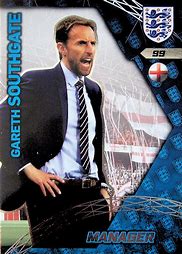 It’s been interesting to hear Gareth Southgate and indeed others in the media talk about this squad being unburdened by history. Indeed I remember writing back in 2018, pondering on the impact of that loss to Croatia at the World Cup would have on that squad. Just three years later of the 26 man squad England playing at the Euros, just nine players (a little over a third) were part of that defeat and are Jordan Pickford, Kyle Walker, John Stones, Harry Maguire, Jordan Henderson, Harry Kane, Raheem Sterling, Kieran Trippier and Marcus Rashford. So given that the majority of the squad don’t have that negative experience in their locker and indeed they have seven players aged 22 or under, there is a freedom and fearlessness of youth that has served the Three Lions well during the competition to date.
It’s been interesting to hear Gareth Southgate and indeed others in the media talk about this squad being unburdened by history. Indeed I remember writing back in 2018, pondering on the impact of that loss to Croatia at the World Cup would have on that squad. Just three years later of the 26 man squad England playing at the Euros, just nine players (a little over a third) were part of that defeat and are Jordan Pickford, Kyle Walker, John Stones, Harry Maguire, Jordan Henderson, Harry Kane, Raheem Sterling, Kieran Trippier and Marcus Rashford. So given that the majority of the squad don’t have that negative experience in their locker and indeed they have seven players aged 22 or under, there is a freedom and fearlessness of youth that has served the Three Lions well during the competition to date.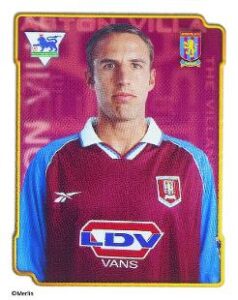 At every opportunity the media have rolled out the 1996 Euro penalty miss by England boss Southgate and talked about redemption for the then Aston Villa defender. He instead has continued to focus on the job in hand, and whilst of course he will still carry those memories from that night at the ‘old’ Wembley, he responds to every media question always with his mind on the present and the objective of winning the European Championship for the first time in England’s history. Whatever happens tomorrow, he and his squad can be proud of what they have achieved. But of course, one more victory would be oh so welcome.
At every opportunity the media have rolled out the 1996 Euro penalty miss by England boss Southgate and talked about redemption for the then Aston Villa defender. He instead has continued to focus on the job in hand, and whilst of course he will still carry those memories from that night at the ‘old’ Wembley, he responds to every media question always with his mind on the present and the objective of winning the European Championship for the first time in England’s history. Whatever happens tomorrow, he and his squad can be proud of what they have achieved. But of course, one more victory would be oh so welcome.
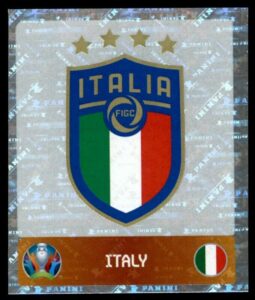 Italy v Spain (Wembley Stadium, London)
Italy v Spain (Wembley Stadium, London) No more Number Ones: The Round of 16 saw the departure of both the Euro reigning champions Portugal and the reigning World Champions, and pre-tournament favourites, France, and the Quarter-Finals delivered up yet another scalp, this time in the form of the number-one ranked nation – Belgium. In truth, it sometimes feels like the FIFA rankings can be taken with a pinch of salt, but nonetheless, there were definitely high hopes for the Red Devils both coming into the tournament and after an impressive unbeaten run in the first four matches, which saw them knock out Portugal. Their squad has been spoken of in recent years as a Golden Generation, with the likes of Courtois, Vertonghen, De Bruyne, Hazard and Lukaku – to name a fearsome five-a-side. But, as we all know too well, a Golden Generation doesn’t guarantee success, and there was no escaping the fact that this was Belgium’s crop. Going into their Quarter-Final with Italy, the Red Devils had enjoyed a fairly easy and uncomplicated journey thus far, but in a reinvigorated Azzurri, their biggest test was to come, and once more they came up short. Yes, there were some Italian theatrics and questionable antics, but, in truth, Belgium never really looked like a team who were up to the challenge of their counterparts. A 2-1 defeat was enough to see them bow out of yet another promising tournament having failed to live up to their golden billing.
No more Number Ones: The Round of 16 saw the departure of both the Euro reigning champions Portugal and the reigning World Champions, and pre-tournament favourites, France, and the Quarter-Finals delivered up yet another scalp, this time in the form of the number-one ranked nation – Belgium. In truth, it sometimes feels like the FIFA rankings can be taken with a pinch of salt, but nonetheless, there were definitely high hopes for the Red Devils both coming into the tournament and after an impressive unbeaten run in the first four matches, which saw them knock out Portugal. Their squad has been spoken of in recent years as a Golden Generation, with the likes of Courtois, Vertonghen, De Bruyne, Hazard and Lukaku – to name a fearsome five-a-side. But, as we all know too well, a Golden Generation doesn’t guarantee success, and there was no escaping the fact that this was Belgium’s crop. Going into their Quarter-Final with Italy, the Red Devils had enjoyed a fairly easy and uncomplicated journey thus far, but in a reinvigorated Azzurri, their biggest test was to come, and once more they came up short. Yes, there were some Italian theatrics and questionable antics, but, in truth, Belgium never really looked like a team who were up to the challenge of their counterparts. A 2-1 defeat was enough to see them bow out of yet another promising tournament having failed to live up to their golden billing.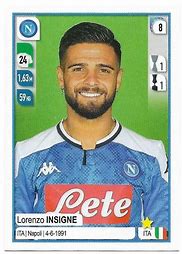 Swapping… shorts: The gifting of shirts after a match has long been a custom in football, but seeing a Y-front-clad Giovanni Di Lorenzo, who had ‘gifted’ his shorts to some lucky (?) recipient, after Italy’s win was a new one on me, although Jurgen Klinsmann reliably informed viewers that this was common practice in Italy… hmmm. A sweaty shirt given away is one thing, but shorts, really? At least with shirts, they have the name on the back and all of the added details that these days adorn the front – the fixture, date, inside-leg measurement – well, perhaps not the last one, but it seems to be going that way. But what do you get with shorts, apart from the number and team badge? What’s to say, in your dotage, you’ll even remember who was Italy’s number 2 at some point in the past? No, give me a shirt any day, thank you. Although that brings me to the whole shirt-swapping practice between players (look away now, Roy Keane). I’ve always wondered how this is negotiated. Does a player have his sights on an opposite number from the get-go? Are negotiations made before the match or is there an approach during or at half-time? Is there a mad rush to get the star’s shirt at the end of the match and it’s all down to a first-come first-served basis? Or does the shirt giver get to bestow his shirt on the lucky recipient? And what of the shirt giver, is he obliged to take the shirt of his opposite number even if he’s absolutely no inclination/knowledge of him? It’s surely pretty bad etiquette to refuse. I imagine Messi and Ronaldo must have quite the collection of random players’ shirts amassed somewhere. And what of the poor players who never get asked for their shirts – well, I guess they could always start giving away their shorts – or perhaps their socks if it comes to it.
Swapping… shorts: The gifting of shirts after a match has long been a custom in football, but seeing a Y-front-clad Giovanni Di Lorenzo, who had ‘gifted’ his shorts to some lucky (?) recipient, after Italy’s win was a new one on me, although Jurgen Klinsmann reliably informed viewers that this was common practice in Italy… hmmm. A sweaty shirt given away is one thing, but shorts, really? At least with shirts, they have the name on the back and all of the added details that these days adorn the front – the fixture, date, inside-leg measurement – well, perhaps not the last one, but it seems to be going that way. But what do you get with shorts, apart from the number and team badge? What’s to say, in your dotage, you’ll even remember who was Italy’s number 2 at some point in the past? No, give me a shirt any day, thank you. Although that brings me to the whole shirt-swapping practice between players (look away now, Roy Keane). I’ve always wondered how this is negotiated. Does a player have his sights on an opposite number from the get-go? Are negotiations made before the match or is there an approach during or at half-time? Is there a mad rush to get the star’s shirt at the end of the match and it’s all down to a first-come first-served basis? Or does the shirt giver get to bestow his shirt on the lucky recipient? And what of the shirt giver, is he obliged to take the shirt of his opposite number even if he’s absolutely no inclination/knowledge of him? It’s surely pretty bad etiquette to refuse. I imagine Messi and Ronaldo must have quite the collection of random players’ shirts amassed somewhere. And what of the poor players who never get asked for their shirts – well, I guess they could always start giving away their shorts – or perhaps their socks if it comes to it.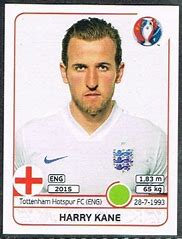 Golden Boot: Ronaldo may have bid farewell to Euro 2020, but with him he took a host of records, and there is surely one more accolade still in his sights, as he lies back on a beach somewhere, drinking water (not Coke) and taking in the conclusion of the tournament – Golden Boot. Whilst Patrick Schick levelled up with Ronaldo’s five goals, with his strike against Denmark in the Quarter-Finals, the Portuguese must have breathed a sigh of relief when not only Schick, but Lukaku and Forsberg who were hot on his heels in the Golden Boot race, all crashed out of the tournament. However, it’s not quite signed, sealed and delivered for Ronaldo yet, for, whilst he sits pretty at the top of the charts with Schick on five goals, Denmark’s Kasper Dolberg’s strike against the Czech Republic lifted him up to three goals, alongside Raheem Sterling. And, there’s another contender, making a late – but timely – dash for it – none other than Harry Kane. He who was being written off in many quarters after failing to score in the opening three matches has taken his tally up to three in just two games, with time yet to improve on that. There are a number of other players with two goals to their name left in the tournament, including Insigne and Immobile of Italy, Morata and Torres of Spain, and Maehle and Poulsen of Denmark. In what has already been a topsy-turvy tournament, nothing can be taken for granted, and whilst Ronaldo and Schick may each have one hand on the Golden Boot, don’t rule out an Englishman spoiling their party.
Golden Boot: Ronaldo may have bid farewell to Euro 2020, but with him he took a host of records, and there is surely one more accolade still in his sights, as he lies back on a beach somewhere, drinking water (not Coke) and taking in the conclusion of the tournament – Golden Boot. Whilst Patrick Schick levelled up with Ronaldo’s five goals, with his strike against Denmark in the Quarter-Finals, the Portuguese must have breathed a sigh of relief when not only Schick, but Lukaku and Forsberg who were hot on his heels in the Golden Boot race, all crashed out of the tournament. However, it’s not quite signed, sealed and delivered for Ronaldo yet, for, whilst he sits pretty at the top of the charts with Schick on five goals, Denmark’s Kasper Dolberg’s strike against the Czech Republic lifted him up to three goals, alongside Raheem Sterling. And, there’s another contender, making a late – but timely – dash for it – none other than Harry Kane. He who was being written off in many quarters after failing to score in the opening three matches has taken his tally up to three in just two games, with time yet to improve on that. There are a number of other players with two goals to their name left in the tournament, including Insigne and Immobile of Italy, Morata and Torres of Spain, and Maehle and Poulsen of Denmark. In what has already been a topsy-turvy tournament, nothing can be taken for granted, and whilst Ronaldo and Schick may each have one hand on the Golden Boot, don’t rule out an Englishman spoiling their party.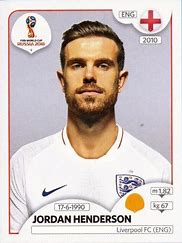 Three Lions: And, on that note, let’s turn to England and enjoy the moment – it doesn’t happen too often. After overcoming Germany, Ukraine were considered to be less of a challenge on paper, but, as any England fan knows, games aren’t won on paper – two words: Iceland, 2016. So, although hopes were raised going into the game, nobody was expecting an easy time of it, but in this craziest of times, we should have perhaps learned, if nothing else, to expect the unexpected, and in this case, the unexpected was one of the most comfortable victories in a knock-out stage in England’s history. After close contests with the Netherlands and Sweden, Ukraine shouldn’t have been a walkover, but I suspect that was as close to a walkover as is possible in tournament knock-out football. Admittedly, the early goal did England a lot of favours, and there was never really any danger from thereon out, as England scored four goals in a knockout stage for only the second time – the first, you ask? Some World Cup in 1966. Amongst the goal-scorers was Jordan Henderson who netted for the first time for his country in 62 appearances, taking perhaps the somewhat dubious honour of becoming the player with the longest wait for their first England goal – succeeding Sol Campbell (47 apps). Meanwhile, a fifth consecutive clean sheet in the tournament saw England progress to a total seven consecutive clean sheets for the first time ever – over 11 hours without conceding. And whilst the schooling of Ukraine was a collective effort, and a fairly routine one at that, Luke Shaw was amongst the most impressive performers, adding to his assists for the tournament and sitting joint second with Pierre-Emile Hojbjerg for three in the competition, with the departed Switzerland’s Zuber only one assist ahead. England certainly cruised into a Semi-Final return to Wembley against Denmark, with even the referee not wanting to prolong Ukraine’s agony, blowing up for full-time bang on 90 minutes before even the board denoting the additional minutes had been raised. Let’s hope it’s just as plain sailing through to the Final.
Three Lions: And, on that note, let’s turn to England and enjoy the moment – it doesn’t happen too often. After overcoming Germany, Ukraine were considered to be less of a challenge on paper, but, as any England fan knows, games aren’t won on paper – two words: Iceland, 2016. So, although hopes were raised going into the game, nobody was expecting an easy time of it, but in this craziest of times, we should have perhaps learned, if nothing else, to expect the unexpected, and in this case, the unexpected was one of the most comfortable victories in a knock-out stage in England’s history. After close contests with the Netherlands and Sweden, Ukraine shouldn’t have been a walkover, but I suspect that was as close to a walkover as is possible in tournament knock-out football. Admittedly, the early goal did England a lot of favours, and there was never really any danger from thereon out, as England scored four goals in a knockout stage for only the second time – the first, you ask? Some World Cup in 1966. Amongst the goal-scorers was Jordan Henderson who netted for the first time for his country in 62 appearances, taking perhaps the somewhat dubious honour of becoming the player with the longest wait for their first England goal – succeeding Sol Campbell (47 apps). Meanwhile, a fifth consecutive clean sheet in the tournament saw England progress to a total seven consecutive clean sheets for the first time ever – over 11 hours without conceding. And whilst the schooling of Ukraine was a collective effort, and a fairly routine one at that, Luke Shaw was amongst the most impressive performers, adding to his assists for the tournament and sitting joint second with Pierre-Emile Hojbjerg for three in the competition, with the departed Switzerland’s Zuber only one assist ahead. England certainly cruised into a Semi-Final return to Wembley against Denmark, with even the referee not wanting to prolong Ukraine’s agony, blowing up for full-time bang on 90 minutes before even the board denoting the additional minutes had been raised. Let’s hope it’s just as plain sailing through to the Final. Czech Republic (0) 1 – 2 (2) Denmark
Czech Republic (0) 1 – 2 (2) Denmark